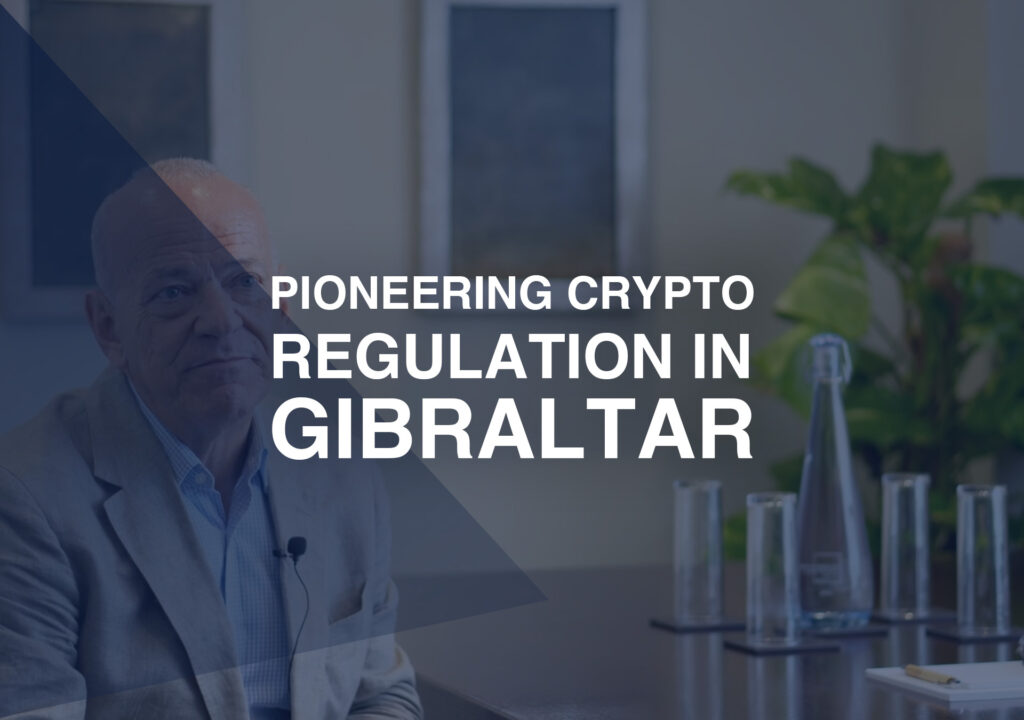Overview on changes affecting Experienced Investor Funds (EIFs): Financial Services (Experienced Investor Fund) Regulations 2018 (the “New Regulations”) and the Gibraltar Financial Services Commission’s (“GFSC”) statement on EIFs investing in digital assets
Introduction
The EIF legislation was originally introduced in 2005. EIFs are collective investment schemes designed for professional, high net worth or experienced investors. New Regulations, modifying and supplementing existing EIF legislation, came into effect on 23rd October 2018. The most important change to the EIF regime, introduces new criteria, used to determine those persons who are considered eligible by the GFSC, for the management and control of an EIF.
Separately, the GFSC has responded to the increased investment by EIFs in digital assets such as virtual currencies and similar DLT-based tokens by issuing a statement, highlighting the considerations that EIFs should take into account when investing in digital assets.
The EIF regime
EIFs were registered in accordance with the regime established under the Financial Services (Experienced Investor Fund) Regulations 2012, the predecessor of the New Regulations. The EIF regime was reliant on licensed service providers undertaking various statutory functions, including a requirement for the EIF’s board to consist of a minimum of two Gibraltar ordinarily resident directors qualified to act as directors of EIFs and licensed by the GFSC for this purpose.
An EIF must appoint an administrator domiciled and regulated in Gibraltar or, if not so authorised, established and regulated in a jurisdiction where it is regulated in accordance with a legislative and regulatory regime that provides at least equivalent protection to the regime in Gibraltar. The appointment of Fund administrators established outside of Gibraltar requires the GFSC’s prior consent and is also subject to the consent of the Minister with responsibility for financial services.
Changes to the EIF Regime
The key change under the New Regulations relates to the management and control rules with regards to EIFs. As set out above, under the predecessor regulations, at least two members of the EIF’s board exercising management and control functions, needed to be Gibraltar ordinarily resident and specifically licensed for this purpose. This local residency requirement has been relaxed under the New Regulations. In the case of a company, the most common vehicle used to establish an EIF, a minimum of two directors would still need to be appointed. However, the following criteria will now need to be satisfied for each appointed director (irrespective of the director’s residency). Accordingly, each director must:
• be a fit and proper person to manage and control the EIF;
• be sufficiently experienced to direct the management and control of the EIF; and
• be capable of being effectively supervised by the GFSC.
If a director is not ordinarily a resident in Gibraltar, he must be willing to meet the GFSC in Gibraltar at such times and in such circumstances as the GFSC may reasonably require or request.
The starting point for the GFSC is that one of the two persons appointed to the board of the EIF must be ordinarily resident in Gibraltar. However, such a requirement may be dispensed with where a waiver is granted. Under the New Regulations, waivers are only to be granted, where the GFSC considers the individual is of a sufficient qualified experienced or otherwise, to direct and manage the EIF, and that special circumstances make it appropriate to grant such a waiver. This salient change is a welcome departure from the previous law and opens up greater possibilities for directors to be compliant despite not being ordinary residents of Gibraltar, whilst still ensuring strict standards for the protection of investors.
There are numerous other technical changes to the regime. However, the changes are minor in nature and in the large majority of cases these changes will have no material effect.
In order to maintain its position as a competitive domicile for financial services, Gibraltar has time and time again pioneered legislation so that it stays ahead of the curve. The new EIF regime should produce positive outcomes which will allow businesses to comply with the legislation on a level which greatly increases both the protection of the EIF and subsequently its investors, yet provides the necessary flexibility to maintain operational structures and service provider relationships, which the EIF organisers may be accustomed to. This should put Gibraltar in a much stronger position to attract new and developing Funds to do business in the jurisdiction.
The GFSC Statements on EIFs Investing in Digital Assets
The GFSC has noted the increasing activity with respect to EIFs which are seeking to invest in digital assets such as virtual currencies and similar DLT-based tokens. As it currently stands, the GFSC has no objections with EIFs investing in digital assets provided the EIF regime is complied with. However, it should be noted HM Government of Gibraltar is currently conducting a review of the current investment Funds’ regime as part of a wider exercise and consideration is being given, within that scope, to the impact that tokenised assets may have on Funds.
In the interim, the GFSC issued a statement on 17th October 2018, outlining the following matters that are expected to be considered by an EIF’s directors when investing in digital assets, given the unique characteristics and inherent risks associated with investing in these assets:
• Are the risks associated with investing in digital assets appropriately disclosed in the Fund’s offer document? Are the risks of loss of some or all digital assets held by the Fund prominently disclosed to a prospective or current investor?
• Are the security arrangements with respect to digital assets explained in sufficient detail to allow an investor to understand how assets will be protected? In particular, how are private keys are kept and safeguarded? Will a Fund rely on a custodian, exchange, or internal storage to safeguard the assets?
• What safeguards are in place to protect an EIF from cyber threat?
• Do the directors and investment manager have sufficient knowledge and expertise of digital assets to undertake their function appropriately?
• Have the directors considered if there is a requirement or potential future need for a depository under the Alternative Investment Fund Managers Directive?
• Has the valuation policy been considered in sufficient detail and adequately explained to potential and current investors to ensure that assets are appropriately stated when preparing the net asset valuation?
• Is the Fund accepting subscriptions in digital assets? If so, how will it comply with the relevant anti-money laundering legislation?
• Has the Fund implemented appropriate procedures and controls in order to identify ultimate beneficial owners of any subscribing entities?
Conclusion
In most respects, the New Regulations mirror its predecessor. However, the key change relates to where those managing and controlling an EIF may reside. The New Regulations are encouraging that part of this function be undertaken by a person residing in Gibraltar. However, under exceptional circumstances and having regard to investor protection and reputational considerations, the GFSC may waive this requirement, effectively allowing for an EIF to be managed and controlled by persons not residing in Gibraltar. This allows greater scope for Fund organisers to replicate existing structures, including the use of non-Gibraltar administrators.
The GFSC statement relating to the use of EIFs for investing in digital assets is also a very welcomed addition. It reinforces what Gibraltar has been doing in the digital space generally, which is to position itself as an internationally compliant and robust jurisdiction that is creating the right conditions in which innovation can flourish whilst simultaneously maintaining the protection of investors and the integrity of Gibraltar as a competitive financial centre.
Disclaimer: Please note that the information and any commentary on the law contained in this brochure is only intended as a general statement and is provided for information purposes only and no action should be taken in reliance on it without specific legal advice. Every reasonable effort is made to make the information and commentary accurate and up to date, but no responsibility for its accuracy and correctness, or for any consequence of relying on it, is assumed by ISOLAS LLP.




